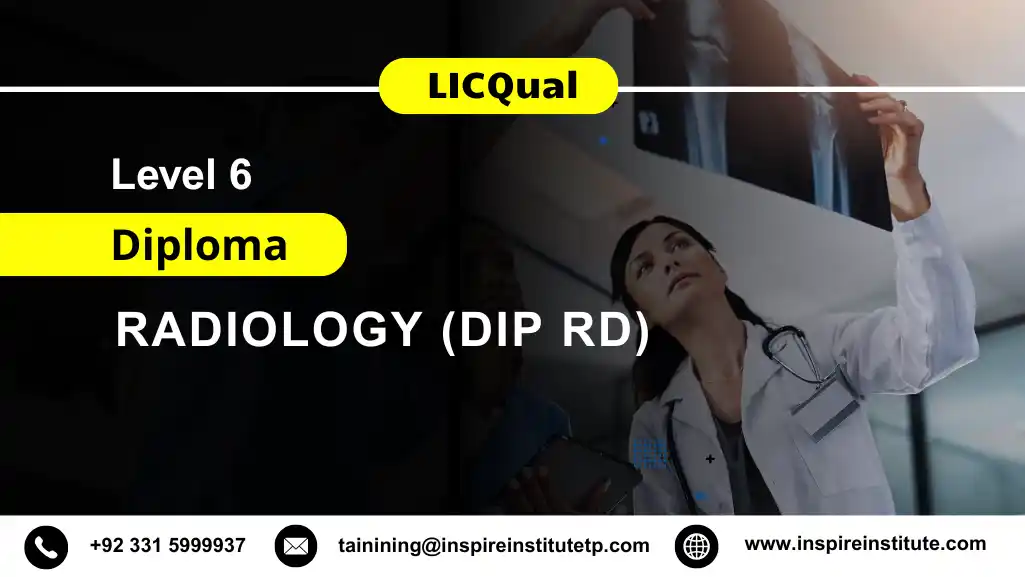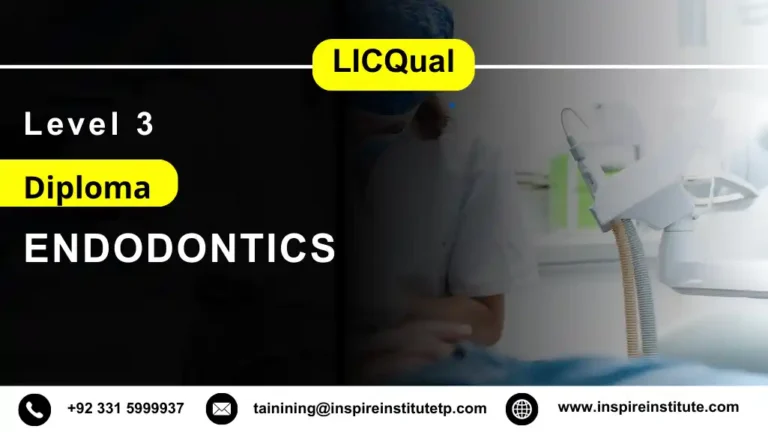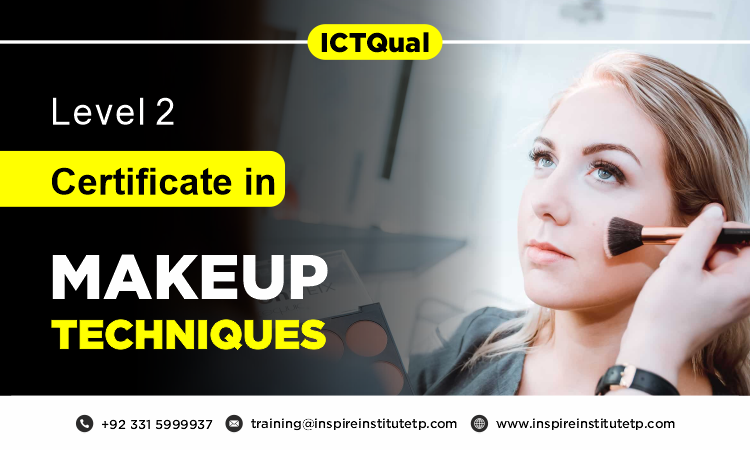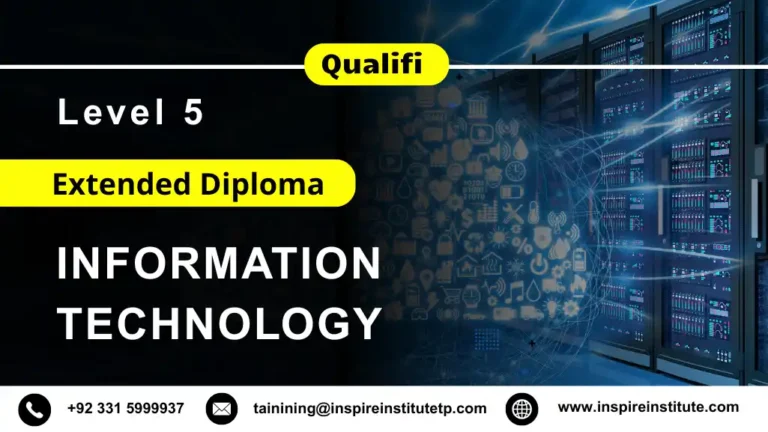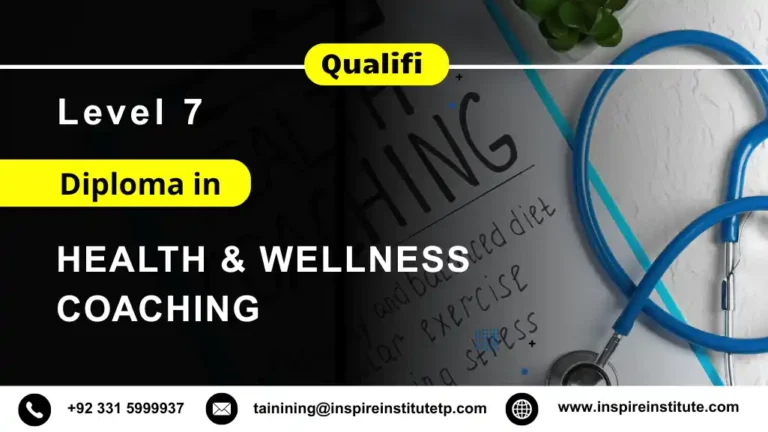LICQual Level 6 Diploma in Radiology (Dip RD)
The LICQual Level 6 Diploma in Radiology (Dip RD) is a prestigious UK-accredited qualification designed to equip healthcare professionals with advanced expertise in diagnostic imaging and radiological sciences. As medical imaging becomes an essential tool in disease diagnosis, treatment planning, and patient management, this diploma provides a comprehensive understanding of the scientific, technical, and clinical aspects of radiology. It is ideal for medical practitioners, radiologic technologists, and healthcare professionals seeking to enhance their knowledge and proficiency in modern diagnostic imaging.
This radiology diploma course offers a strong foundation in radiological anatomy, medical physics, and imaging modalities such as X-rays, CT scans, MRI, and ultrasound. Learners explore the latest developments in radiological techniques, image interpretation, and radiation protection. The program also emphasizes patient safety, ethical practice, and evidence-based approaches, preparing learners to meet international healthcare standards.
The LICQual Level 6 Diploma in Radiology blends theoretical learning with practical application. Learners develop critical skills in imaging analysis, report writing, and clinical evaluation while gaining insight into the integration of technology in medical diagnostics. Through structured assignments and real-world case studies, participants build the competence needed to interpret diagnostic images accurately and support effective medical decision-making.
Why Choose this Qualification
The LICQual Level 6 Diploma in Radiology (Dip RD) is a highly respected UK-accredited qualification that offers healthcare professionals the opportunity to advance their skills and knowledge in diagnostic imaging and radiological sciences. As medical technology continues to evolve, this diploma provides the foundation needed to master imaging interpretation, radiation safety, and patient care practices in clinical settings. Designed for radiologic technologists, physicians, and healthcare practitioners, the program bridges theory and practice through a flexible, assignment-based structure that aligns with global healthcare standards.
Key Reasons to Choose this Qualification
Specialist Knowledge
- Gain an advanced understanding of radiological anatomy, imaging modalities, and medical physics.
- Learn about various imaging technologies including X-rays, MRI, CT scans, and ultrasound.
- Develop expertise in image acquisition, interpretation, and diagnostic evaluation.
- Understand radiation protection protocols and safety standards in clinical imaging.
- Study disease pathology through diagnostic imaging for improved clinical outcomes.
Practical Application
- Apply radiological theories to real-world medical imaging and diagnostic procedures.
- Strengthen skills in image analysis, reporting, and decision-making based on diagnostic results.
- Participate in case-based assignments simulating real clinical scenarios.
- Build confidence in using advanced imaging technologies for accurate diagnosis.
- Develop the ability to integrate radiology findings into multidisciplinary medical care.
Recognised Qualification
- Earn a UK-accredited diploma that meets international healthcare and radiology standards.
- Demonstrates measurable competence and expertise in diagnostic imaging and radiological practice.
- Recognized globally, enhancing employability in hospitals, diagnostic centers, and academic institutions.
- Supports career progression toward advanced clinical or teaching roles in radiology.
- Validates professional excellence in the field of medical imaging and healthcare delivery.
Flexible Learning Pathway
- Study through an assignment-based learning structure tailored for working professionals.
- Learn at your own pace while maintaining professional and clinical responsibilities.
- Access comprehensive online learning resources and dedicated tutor support.
- Benefit from a structured yet flexible curriculum aligned with modern radiology practices.
- Balance academic advancement with day-to-day professional duties.
Evidence-Based Training
- Explore the latest scientific research, radiology protocols, and imaging technologies.
- Learn to apply evidence-based diagnostic and treatment strategies in clinical practice.
- Develop critical thinking for evaluating emerging radiological trends and innovations.
- Strengthen understanding of ethical and safe medical imaging procedures.
- Ensure all practices align with international standards for patient safety and diagnostic quality.
Career Development
- Open doors to advanced roles such as Radiologic Technologist, Diagnostic Imaging Specialist, or Radiology Manager.
- Enhance qualifications for leadership positions in hospitals, clinics, or academic institutions.
- Build a strong portfolio that demonstrates mastery in diagnostic imaging and patient care.
- Gain measurable competencies that support professional licensing and certification.
- Improve job security and growth potential in the ever-evolving healthcare industry.
Enhanced Patient Care
- Develop the skills to deliver accurate, patient-centered diagnostic imaging services.
- Learn to interpret radiological data to guide treatment planning and disease management.
- Improve patient outcomes by ensuring precise and safe imaging procedures.
- Promote patient comfort, communication, and confidence throughout imaging processes.
- Contribute to early detection, prevention, and management of various health conditions.
Professional Growth
- Strengthen analytical, communication, and teamwork skills essential in clinical environments.
- Gain the confidence to manage complex diagnostic imaging cases with professional precision.
- Encourage reflective learning and continuous improvement in radiology practice.
- Engage in interdisciplinary collaboration to enhance healthcare service quality.
- Develop leadership and mentoring abilities for future roles in education and radiology management.
The LICQual Level 6 Diploma in Radiology (Dip RD) provides learners with the perfect balance of theoretical knowledge and practical competence. It empowers professionals to excel in diagnostic imaging, contribute to patient-centered care, and advance their careers in medical radiology. By earning this globally recognized qualification, learners position themselves at the forefront of modern healthcare innovation and clinical excellence.
Course Overview
LICQual UK Awarding Body
Average Completion Time:
6-24 Months
Study Units: 6 Units
Evidence & Assignment Based
Mandatory Units
Who Should Take This Course
The LICQual Level 6 Diploma in Radiology (Dip RD) is designed for professionals and aspiring practitioners in the field of medical imaging who wish to strengthen their expertise, enhance diagnostic accuracy, and contribute to improved patient care. This UK-accredited qualification blends academic depth with real-world clinical application, making it suitable for individuals aiming to excel in diagnostic radiology, radiologic technology, and healthcare management. The course supports diverse professional backgrounds and provides learners with the essential knowledge, technical skills, and analytical abilities required to succeed in radiology and related healthcare fields.
This Course is Suitable for
Radiologic Technologists and Imaging Professionals
- Ideal for professionals currently working in radiology departments or imaging centers.
- Enhances understanding of advanced imaging techniques, radiation safety, and diagnostic interpretation.
- Builds competence in image analysis and quality assurance for better patient outcomes.
- Equips learners with leadership and technical skills to handle complex imaging equipment.
- Supports career progression into senior or specialist radiology roles.
Medical Practitioners and Physicians
- Suitable for doctors seeking to broaden their knowledge of diagnostic imaging and radiological science.
- Improves clinical decision-making by enhancing understanding of imaging results and their implications.
- Encourages effective communication and collaboration with radiologists and diagnostic teams.
- Equips practitioners with the ability to integrate imaging data into treatment planning.
- Enhances capability to identify, assess, and monitor disease progression through imaging.
Healthcare and Allied Health Professionals
- Designed for nurses, medical assistants, and other healthcare workers aiming to gain radiology-related expertise.
- Provides foundational knowledge of imaging principles and patient safety in diagnostic procedures.
- Develops interdisciplinary collaboration skills essential in modern healthcare systems.
- Enables healthcare professionals to contribute effectively to patient diagnosis and management.
- Strengthens understanding of clinical protocols and radiation protection standards.
Biomedical Science and Medical Laboratory Graduates
- Beneficial for graduates interested in transitioning into diagnostic imaging and clinical radiology.
- Builds a strong foundation in anatomy, medical physics, and imaging modalities.
- Encourages application of scientific knowledge in radiologic interpretation and analysis.
- Prepares learners for further specialization in radiologic research or advanced medical imaging.
- Expands employment opportunities across hospitals, diagnostic laboratories, and healthcare institutions.
Aspiring Radiology Students and Career Changers
- Perfect for individuals seeking to begin or shift their careers into the radiology field.
- Provides a structured, step-by-step understanding of imaging sciences and diagnostic technology.
- Offers flexible, assignment-based learning suitable for newcomers to the healthcare sector.
- Builds transferable skills in problem-solving, analytical thinking, and technical communication.
- Opens pathways for continued education or higher qualifications in medical imaging.
Academic and Research Professionals
- Suitable for educators, trainers, and researchers in medical and allied health sciences.
- Strengthens academic expertise in radiologic theory, imaging methodology, and patient management.
- Enhances ability to design, conduct, and evaluate radiological research studies.
- Encourages development of innovative teaching and learning strategies for radiology education.
- Builds the foundation for contributing to evidence-based advancements in medical imaging.
Healthcare Administrators and Managers
- Ideal for professionals managing radiology departments or diagnostic facilities.
- Provides insights into radiology workflow optimization and equipment management.
- Enhances understanding of healthcare compliance, safety, and quality assurance in imaging centers.
- Develops managerial and leadership skills for supervising radiology teams effectively.
- Promotes strategic decision-making for operational excellence in diagnostic services.
International Medical Professionals
- Suitable for healthcare professionals outside the UK seeking an internationally recognized qualification.
- Ensures global-standard knowledge aligned with modern radiology practices and healthcare systems.
- Supports career growth in hospitals, diagnostic centers, and international healthcare institutions.
- Provides cross-cultural competence in delivering high-quality, patient-centered radiological care.
- Prepares learners for global mobility and professional recognition in the radiology sector.
The LICQual Level 6 Diploma in Radiology (Dip RD) caters to a diverse range of learners—from aspiring radiology students to seasoned healthcare professionals—who aim to expand their clinical, technical, and analytical skills. With its focus on advanced radiological science, practical application, and flexible learning, this qualification empowers professionals to meet global healthcare demands and achieve excellence in diagnostic imaging.based care and to contribute meaningfully to the advancement of mental health on both national and global levels.
Course Benefits
The LICQual Level 6 Diploma in Radiology (Dip RD) is a prestigious UK-accredited qualification designed for healthcare professionals, medical practitioners, and aspiring radiology specialists seeking to advance their knowledge and clinical expertise in diagnostic imaging and radiologic science. This comprehensive, assignment-based diploma bridges advanced theoretical understanding with practical application, preparing learners to perform, interpret, and manage radiological procedures with precision, safety, and professionalism. The course aligns with global healthcare standards and addresses the growing need for skilled radiology practitioners who can support accurate diagnosis and effective patient care.
Key Benefits of the Course
Specialist Knowledge
- Gain a comprehensive understanding of the core principles of radiologic science, including imaging physics, anatomy, radiographic positioning, and pathology recognition.
- Explore advanced diagnostic technologies such as Computed Tomography (CT), Magnetic Resonance Imaging (MRI), Ultrasound, and Nuclear Medicine.
- Learn about radiation protection protocols, image optimization, and ethical standards in diagnostic imaging.
- Understand the integration of clinical anatomy and imaging techniques for accurate diagnosis and reporting.
- Develop a solid academic foundation to perform radiologic procedures with technical precision and professional excellence.
Practical Application
- Build essential hands-on competence in diagnostic imaging, radiographic analysis, and clinical operations.
- Engage in real-world case studies and clinical simulations that enhance practical decision-making.
- Develop the ability to operate and maintain modern radiologic equipment efficiently and safely.
- Interpret imaging results accurately, ensuring clinical quality and diagnostic reliability.
- Collaborate effectively within multidisciplinary medical teams to deliver high-quality healthcare outcomes.
Recognised Qualification
- Earn a globally recognized UK-accredited diploma that validates your expertise in diagnostic radiology.
- Demonstrate professional credibility and adherence to international standards in radiologic practice.
- Enhance your qualifications for career growth in clinical, academic, or research settings.
- Gain global recognition for your radiologic competence and commitment to healthcare excellence.
- Open doors to advanced opportunities within hospitals, medical centers, and diagnostic institutions.
Flexible Learning Pathway
- Study through an assignment-based, self-paced learning model ideal for working professionals.
- Continue your clinical duties while pursuing academic and professional advancement.
- Access structured modules, guided learning materials, and personalized mentorship for effective study.
- Balance your educational journey with work and personal responsibilities seamlessly.
- Achieve academic excellence through a flexible, learner-centered approach designed for success.
Evidence-Based Training
- Stay at the forefront of medical imaging with research-informed and evidence-based training.
- Master current diagnostic protocols, international imaging standards, and best clinical practices.
- Learn to critically evaluate radiologic literature, imaging techniques, and clinical methodologies.
- Develop confidence in using validated scientific principles to improve diagnostic outcomes.
- Ensure safety, efficiency, and innovation in every aspect of radiologic service delivery.
Career Development
- Unlock diverse career opportunities in radiology departments, diagnostic centers, and teaching hospitals.
- Qualify for advanced roles such as Radiologic Technologist, Imaging Specialist, or Radiology Manager.
- Prepare for postgraduate studies or specialization in interventional radiology or radiation therapy.
- Enhance employability across local and international healthcare institutions.
- Strengthen your professional profile to take on leadership or academic positions in medical imaging.
Enhanced Patient Care
- Deliver safe, ethical, and patient-centered diagnostic imaging services.
- Learn to apply radiation protection measures and ensure informed consent in all procedures.
- Enhance communication skills to provide patient comfort and reassurance during imaging sessions.
- Focus on early detection, prevention, and accurate diagnosis to improve clinical outcomes.
- Contribute to healthcare excellence by integrating compassion, precision, and professionalism.
Professional Growth
- Develop critical thinking, analytical, and decision-making skills essential for modern radiologic practice.
- Cultivate professional accountability and commitment to continuous learning.
- Gain leadership and teamwork abilities to excel in multidisciplinary healthcare environments.
- Encourage reflective practice and personal development for long-term career success.
- Graduate as a confident, ethical, and technically skilled radiology professional ready to lead in the field.
The LICQual Level 6 Diploma in Radiology (Dip RD) empowers healthcare professionals to become proficient, ethical, and globally recognized radiology practitioners. It combines scientific knowledge, clinical expertise, and flexible learning opportunities to prepare learners for impactful roles in diagnostic imaging and patient care worldwide.
Eligibility Criteria
The LICQual Level 6 Diploma in Radiology (Dip RD) is a UK-accredited qualification designed for healthcare professionals, radiologic technologists, and diagnostic imaging practitioners who aim to advance their expertise in the field of radiologic science. This assignment-based diploma combines theoretical knowledge with clinical application, enabling learners to perform, analyze, and manage diagnostic imaging procedures with precision and professionalism. Meeting the entry requirements ensures that learners possess the academic and technical foundation necessary to excel in this advanced medical imaging programme and apply their learning effectively across diverse healthcare and academic environments.
Educational Background:
Applicants should hold a recognised qualification in medicine, radiography, medical imaging, or a related healthcare discipline. A Level 5 diploma or equivalent qualification in healthcare science, radiologic technology, or biomedical studies may also be accepted. Candidates holding international qualifications in radiology or imaging sciences will be assessed individually to ensure compatibility with UK academic and professional standards.
Professional Experience:
A minimum of one year of experience in diagnostic imaging, radiography, or a related clinical setting is recommended. Prior exposure to radiologic procedures, imaging technology, or patient care is advantageous. However, individuals with a strong academic background in healthcare and a keen interest in medical imaging, even without direct radiology experience, are encouraged to apply, provided they demonstrate the motivation and aptitude for advanced clinical training.
Age Requirement:
Applicants must be at least 18 years old at the time of enrolment. This ensures that learners possess the maturity, responsibility, and ethical understanding required for advanced study and professional practice in radiologic science.
Language Proficiency:
Since the programme is conducted in English, learners must demonstrate proficiency in reading, writing, and verbal communication. For non-native English speakers, a minimum IELTS score of 6.0 or an equivalent qualification is recommended to ensure successful engagement in coursework, assignments, and technical discussions throughout the programme.
Technical Requirements:
Learners must have access to a personal computer or laptop with a stable internet connection to participate in the online learning process, access study materials, and submit assignments. Basic computer literacy—such as proficiency in document preparation, online research, and digital communication—is essential to meet the academic and technical requirements of the course.
Required Documents:
Applicants are required to submit the following documentation during the registration process:
A valid passport or national ID for identification purposes.
Official academic transcripts or certificates of previous qualifications.
Proof of professional experience in radiology, imaging, or a related healthcare field (if applicable).
Additional supporting documents may be requested from applicants with international or non-traditional educational backgrounds to verify eligibility and ensure compliance with UK standards.
The Qualification Process
LICQual Level 6 Diploma in Radiology (Dip RD) follows a structured pathway to ensure learners gain comprehensive knowledge, practical skills, and professional competence in community oral healthcare.
Step 1: Self-Assessment
Learners review the entry requirements to confirm eligibility. Candidates with a background in dentistry, oral health, or public health are encouraged to apply.
Step 2: Registration
Complete the registration process by submitting required documents such as proof of qualifications, a valid ID, and payment of enrollment fees.
Step 3: Induction
An induction session is conducted to:
- Verify learner eligibility and documentation.
- Introduce study materials, learning outcomes, and assessment procedures.
Step 4: Learning and Evidence Submission
Learners complete assignments, case studies, and practical exercises demonstrating competence in public health dentistry, community oral health assessment, preventive strategies, and program planning.
Step 5: Feedback and Revision
Assessors review submitted evidence and provide constructive feedback. Learners can revise and resubmit work to meet all required standards.
Step 6: Competence Validation
Final submissions are evaluated to confirm that learners have met all theoretical and practical learning outcomes.
Step 7: Internal Quality Assurance (IQA)
The IQA team reviews the assessment process to ensure accuracy, fairness, and compliance with international standards.
Step 8: External Verification (EQA)
External verifiers validate the authenticity and quality of learner achievements.
Step 9: Certification
Upon successful verification, learners are awarded LICQual Level 6 Diploma in Radiology (Dip RD) , demonstrating advanced proficiency in community oral healthcare and preparing them for professional growth in dental public health, preventive dentistry, and healthcare policy.

